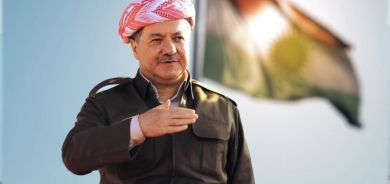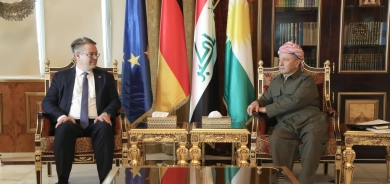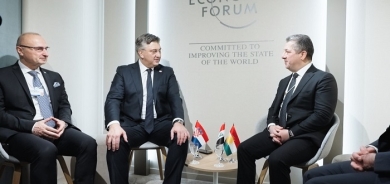KURDISH PRESIDENT MASSOUD BARZANI TO CONFER WITH TURKISH PRIME RECEP TAYYIP ERDOGAN IN DIYARBAKIR

Turkey is heavily involved in this pan-Kurdish dispute because it feels threatened by the potential creation of a PKK-affiliated Kurdish state on its southern border with Syria. Deadly blowback against Turkey from Syria has already occurred by the bombings in Reyhanli on May 11, 2013 which killed 51 and injured 140 in this Turkish city just across the Syrian border near the Mediterranean coast. Now further fuel has been thrown on this internal Kurdish feud between the PKK/PYD vs. the KRG, by the PYD/s declaration of self-rule a few days ago and follow-up announcement that it would form a constituent assembly with the view toward creating a transitional government.
On November 16, KRG President Barzani will travel to Diyarbakir, Turkey to meet Turkish Prime Minister Erdogan to discuss this developing situation as well as the faltering Turkish-PKK peace process. Hostile KRG/Baghdad relations and potential Turkish–KRG oil deals are also likely to be discussed in light of Turkey’s recently improving relations with Baghdad. Both Erdogan and Barzani will tell the PYD that it is not the only Kurdish party in the region. The PYD should stop bullying the other Kurdish parties and trying to be the sole representative of the Syrian Kurds will be the Erdogan-Barzani message. Erdogan will also seek to gain Barzani’s support in restarting the faltering PKK peace process. If successful, Erdogan’s AKP should gain support from Turkey’s Kurds in the upcoming local elections in Turkey at the expense of the pro-Kurdish nationalist BDP which is close to the PKK.
Thus, Barzani must walk a delicate line while in Diyarbakir because the KRG’s de facto alliance with Turkey is life-supporting for the KRG which so badly needs friends, especially now that the United States has withdrawn its troops from Iraq. On the other hand Barzani must be careful not to let Turkey use him to crush fellow Kurds (the PKK/PYD) as so infamously occurred in 1992. Could Solomon himself know how to solve this dilemma?
Professor Michael Gunter is the co-editor with Mohammed M.A. Ahmed of the recently published The Kurdish Spring: Geopolitical Changes and the Kurds (Costa Mesa, CA, 2013); and the author of the soon to be published Out of Nowhere: The Kurds of Syria in Peace and War (London: Hurst & Company, 2014).

 Michael Gunter
Michael Gunter











